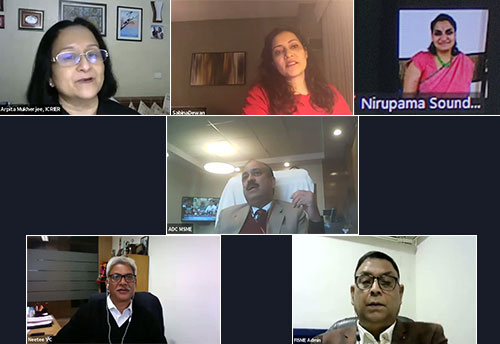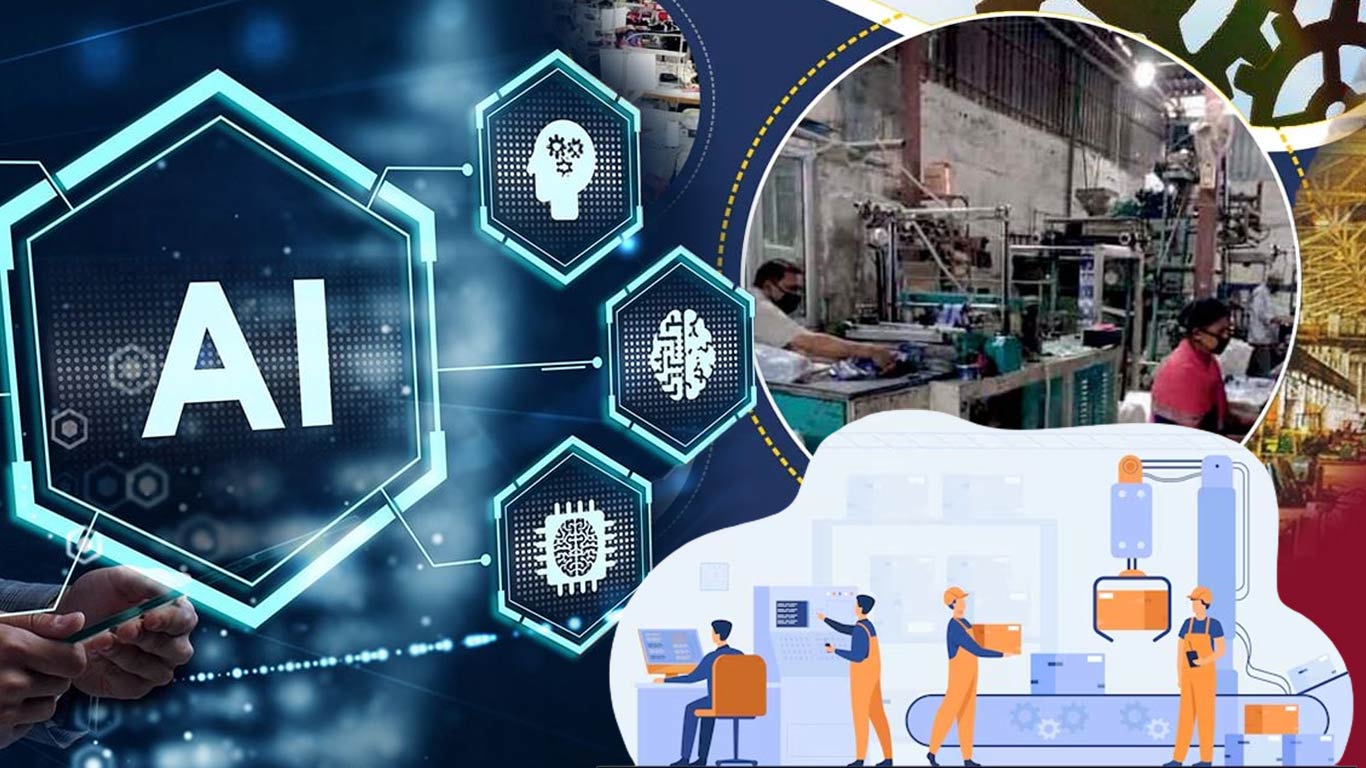Encouraging MSMEs to jump on the e-commerce bandwagon to boost exports, create jobs and secure growth
Updated: Dec 29, 2020 01:12:30pm

Encouraging MSMEs to jump on the e-commerce bandwagon to boost exports, create jobs and secure growth
New Delhi, Dec 29 (KNN) The Federation of Indian Micro and Small and Medium Enterprises (FISME), a leading industry association for small businesses and a member of the National MSME Board, conducted a webinar today on ‘Boosting exports by empowering MSMEs’. The panel was moderated by Mr. Anil Bhardwaj, Secretary General, FISME and saw participation from Mr. Piyush Srivastava, Additional Development Commissioner, Ministry of MSME, Dr. Arpita Mukherjee, Professor, Indian Council for Research on International Economic Relations (ICRIER), Ms. Sabina Dewan, President and Executive Director, JustJobs Network and Ms. Nirupama Soundarajan - Head of Research at Pahle India Foundation.
The discussion aimed at exploring the role of exports for aiding the revival of COVID struck Indian MSMEs, and the benefits of e-commerce for helping Indian MSMEs achieve growth in international markets. The discussion also identified a few regulatory and procedural hurdles which MSMEs face in achieving seamless exports, and requested due attention from the Government.
Speakers at the discussion highlighted that the MSME sector is a significant job creator and backbone of the Indian economy, stating it accounts for more than 40% of India’s exports, and contributes nearly 30% to the country’s GDP. Panellists agreed that the sprawling MSME sector in India may find a natural ally in the e-commerce sector for exports, as e-commerce supply chains enable a seamless-hassle-free experience for small businesses. E-commerce exports enable a B2C exports model wherein exporters register themselves on the e-commerce marketplace locally and sell globally.
Sharing his key remarks, Mr. Piyush Srivastava, Additional Development Commissioner, Ministry of MSME, said “Exports will only come about if there is a competitive product. There is a need for adequate capacity to satiate the domestic market and then to export. Product diversification and quality of products is necessary to boost exports. Awareness, belief, promotion and growth are important pillars to boost growth.”
Highlighting the impact MSME exports can have on job creation, Ms. Sabina Dewan, President and Executive Director of JustJobs Network said, “Small businesses are the backbone of our economy. MSMEs cannot be successful without employment. Small businesses are least able to withstand shocks. The pandemic is one shock while technology is another. It is imperative to prioritize employment and in turn MSMEs, when rebuilding the economy. MSMEs that have had savings and been able to access technology are the ones that have been able to withstand these shocks.
There is a need to build capacity and create a conducive policy environment to benefit exports along with enabling them to leverage technology. It is important to consider the growing importance of e-commerce. This will emerge as a viable alternative for MSMEs and will enable MSMEs to get online and access other markets. The MSMEs that have been able to access capital, credit guarantee and government schemes, labor pools and become tech savvy are the ones that have been able to survive through the pandemic.”
Dr. Arpita Mukherjee, Professor, Indian Council for Research on International Economic Relations (ICRIER) said, “The world has faced a recession in terms of trade in recent times. Exports have contracted. MSMEs constitute the bulk of trade therefore, it is important to incentivize them. Institutional incapacity, high interest rate, logistics, etc. have been impediments for exports to grow. This problem was prevalent before COVID-19 and got accentuated with the pandemic. With the use and purchase of technology, MSMEs would be able to lobby with the government to provide incentives which would help in bolstering productivity. The key areas where MSMEs need direction and assistance are manufacturing and ways to boost the same, financial backing, skilling assistance and programs along with technological upgradation to combat the aftermath of the pandemic. It is therefore important to bring MSMEs online to promote exports.”
Ms. Nirupama Soundarajan - Head of Research at Pahle India Foundation said, “Geopolitical overdependence on any one country is not good for economic growth, therefore it is important to diversify both imports and exports. When it comes to ease of doing business, we look at it in a silo and look at one sector without considering the value chain. For example, when we look at e-commerce as an enabler for export, we also need to enable e-commerce in the regulatory aspect, as well as enable logistics. We make the mistake of looking at the ease of doing business in a myopic manner when it needs to be all encompassing.
E-commerce offers access like most channels cannot. To have access to markets outside the country is not easy. E-commerce does away with these challenges and allows MSMEs to test waters in different markets through consumer feedback. E-commerce allows MSMEs to sell directly to consumers and sell volumes suitable to them. It allows a level playing field and equal opportunities for MSMEs at any level.”
While the pandemic has forced people to stay indoors, it has prompted a strong shift towards online buying, and the trend seems to be not just limited to India. COVID-19 led to an annual growth rate of over 76% for e-commerce sales in the USA from 2019 to June 2020. In Germany and Western Europe, e-commerce sales surged by 16.2% and 17%, respectively (YoY). The global shift towards online marketplaces creates an opportunity for the Indian MSME sector to leverage e-commerce supply chains and lead the globalization of ‘Made in India' products.
Nationally, India has set the vision to increase the contribution of MSMEs to the country's exports from 48% at present to 60%. Indian MSMEs have the potential to achieve bold ambitions, and with the right regulatory and policy support, the MSMEs can surpass the goals.











